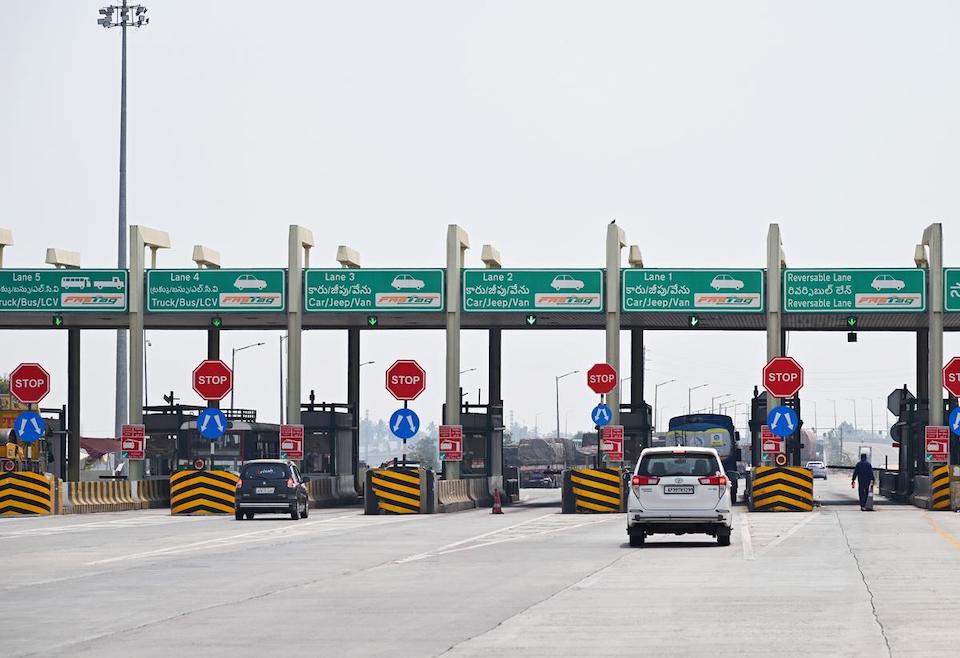India’s national highways are set for a major transformation with the government’s New Toll Policy Draft 2025, promising significant relief for commuters. The draft, which is expected to be implemented soon, introduces a host of commuter-friendly measures, including an unlimited travel annual pass for just Rs 3,000 and a shift to a transparent, distance-based tolling system.
Unlimited Travel With Rs 3,000 Annual Pass
One of the most striking features of the new policy is the introduction of an annual pass priced at Rs 3,000, allowing car owners to travel unlimited kilometres on national highways, expressways, and state expressways for a full year. This is a substantial change from the current system, where only monthly passes are available and are typically limited to local travel across specific toll plazas. With the new annual pass, there will be no need for separate passes for different highways, and payment can be made seamlessly through the FASTag account, making the process both convenient and unified.
The policy was initially considered to include a lifetime pass for Rs 30,000, but consensus could not be reached on this proposal. Nevertheless, the Rs 3,000 annual pass is expected to provide up to 50% relief in toll fees for the average commuter, making long-distance and frequent travel far more affordable. This move is designed to benefit not only daily commuters but also those who travel regularly for business or leisure, offering predictability and significant savings over the year.
Distance-Based Tolling and Per-Kilometre Charges
Another major reform in the draft policy is the shift from traditional toll plazas to a distance-based tolling system. Under the new rules, toll charges will be calculated per kilometre travelled, rather than at fixed points, ensuring that commuters pay only for the actual distance covered. For cars, the proposed rate is approximately Rs 50 per 100 kilometres, which is both transparent and equitable compared to the previous system where drivers often paid for stretches of road they did not fully use.
The government plans to phase out physical toll booths in favour of a fully digital, GPS-based toll collection system. This will enable automatic deduction of tolls based on real-time tracking of vehicle movement, eliminating the need to stop at toll plazas and significantly reducing congestion and travel time. FASTag will remain mandatory for all four-wheelers, and vehicles without a valid FASTag will face double toll charges or penalties. The new system will also be integrated with digital payment platforms, allowing for seamless transactions and real-time monitoring via mobile apps.
The revised toll slabs for 2025, as per vehicle category, are as follows for a 100 km stretch:
– Car/Jeep/Van: Rs 110 (distance-based, FASTag required)
– Light Commercial Vehicle: Rs 180
– Bus/Truck: Rs 360 (peak hour surcharges may apply)
– Heavy Construction Vehicles: Rs 580
– Oversized Vehicles: Rs 720
– Electric Vehicles: Rs 80 (with a 20% discount to promote EV usage)
– Two-wheelers remain exempt except on select private roads.
Monthly pass users will see an average rate of Rs 1,800, while the new annual pass at Rs 3,000 offers unlimited travel, making it the most cost-effective option for frequent travellers.
A Step Towards Smarter, Greener Highways
The New Toll Policy Draft 2025 is a leap towards smarter, more efficient, and commuter-friendly highways. By digitising toll collection, basing charges on actual usage, and offering substantial relief through the annual pass, the government aims to reduce congestion, lower emissions, and make road travel more affordable and transparent for all. Commuters are encouraged to update their FASTag accounts and prepare for the transition to ensure uninterrupted, hassle-free journeys in the new era of Indian highways


